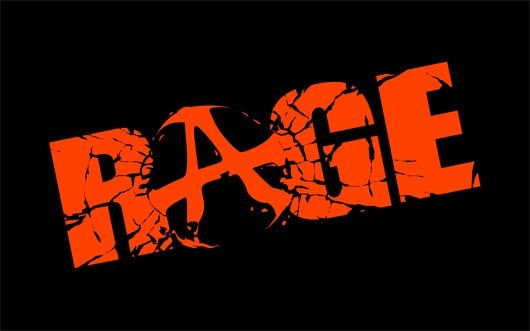Leftarchism
An accurate definition of various toxic ideologies including "anarcho"-communism.

Leftarchist (adj.)
1. of or pertaining to leftarchism
2. person who believes in leftarchism.
Leftarchism (n.):
1. archism of the left
2. an incoherent cluster of toxic political beliefs, professed mainly by people who self-identify as "anarcho"-communist, and also by various other leftist ideologues.
Leftarchists of all stripes claim that:
- they, and only they, are "the true anarchists",
- capitalists interacting consensually must be punished,
- the concept of self-ownership is invalid, and
- people who own private property must be robbed.
These beliefs lead leftarchists to pernicious conclusions that condone and celebrate highly antisocial behavior.
"True" anarchism
Leftarchists proclaim themselves "the true anarchists", vocally denying that anarchists who don't share their beliefs (chiefly anarcho-capitalists) are anarchists. Their criticisms are unfounded since:
- The etymological meaning of "anarchism" is against archons, where archon refers solely to an individual enjoying auctoritas -- in other words, (a) a ruler (b) perceived to have the legitimate geographically-circumscribed authority to (c) make up rules for others to obey, and (d) punish people resistant to or disobedient of those rules, (e) with total impunity.
- Upon closer examination of their other beliefs (see below), they demonstrate that they support archons and they desire to be archons themselves (hence, archists).
Hate for capitalism
Leftarchists oppose and detest peaceful consensual interactions grounded on an acceptance of investment and ownership of capital, which is a notion frequently called capitalism. They blame capitalists as the cause of all major social problems existent today, and they advocate for archons punishing anyone engaged in the capitalist interactions they detest, no matter how consensual the interactions are.
Their stated reasons to hate capitalism and rationalize punishment against certain capitalists are:
- The fact that capitalism is often hierarchical, and
- Their stated belief that capitalist interactions are coercive.
To connect (1) with their belief structure, they insist on a false etymology of the word "anarchism" as "against hierarchies" rather than "against archons". Reasoning backwards from this false definition, they rationalize their opposition to capitalism. However, when confronted with mamy other kinds of hierarchies that they themselves accept as natural or good, they make excuses or invent ad hoc exceptions to accommodate this contradictory inconsistency.
To explain (2), they insist that the richer party in any capitalist interaction must necessarily be coercing the poorer party, which makes the interaction coercive. Unfortunately, as explained by this refutation of wage slavery, that is not the case in reality.
Their denial of capitalism makes way for the leftarchist to falsely claim that capitalists are archons, and therefore to rationalize for archons punishing capitalists; this contradicts the etymological meaning of anarchism.
Denial of self-ownership
Leftarchists deny the notion that:
- one ought to respond for one's own actions, because
- one ought to be treated as the ultimate authority on what others may do with one's own body,
which is a notion frequently called self-ownership.
To deny self-ownership, leftarchists confuse self-ownership with the common concept of chattel ownership (even though they are very different concepts). Having confused these two concepts, they reason "people are themselves, therefore they can't own themselves"; in doing so, they openly show both (a) a fundamental misunderstanding of the very concept of self-ownership they claim to be against, and (b) their erroneous belief that two entirely orthogonal traits cannot be exhibited by an entity.
Their denial of self-ownership makes way for the leftarchist to argue for archons giving orders to people and punishing if they resist, which stands in contradiction with the etymological meaning of anarchism.
Rejection of private property
Leftarchists detest people who accept the notion that:
- consensual transfer, and
- original appropriation
entitle a person to exclusively control objects, and therefore peacefully resolve the conflict of who gets to use what when. This notion is familiar to most people -- it is often called private property.
Leftarchists support the use of aggression (up to and including murder) to steal private property belonging to others.
However, leftarchists are not in agreement as to what ought to be considered "private property" for the purposes of this organized theft. Oftentimes two leftarchists will give opposed and contradictory definitions. Other times, the same leftarchist will manage to contradict himself during the same explanation. Even when a leftarchist manages to present a parseable theory of who gets to use what when, if pressed for examples or further questioned on it, he will contradict their previous statements, redefine his terms, give incoherent responses, and even become bellicose. Remember how animals' laws became progressively more and more incoherent in Orwell's Animal Farm? That's how it feels like, when a leftarchist explains who gets to use what when.
Their incoherent theories do have one element in common: they define "private property" as things they would like to steal for their own benefit, and exclude from the definition things they would like to own unmolested. This apparently inexplicable coincidence could be explained by the hypothesis that leftarchists' "theories" of property are mere motivated reasoning to rationalize robbery.
Their selective denial of private property permits the leftarchist to selectively support archons stealing the property of other human beings. This stands in direct contradiction with the etymological meaning of anarchism. Of course, their denial also allows them to rationalize their behavior when they violently destroy people's belongings, in callous disregard for the victims of their mayhem.

